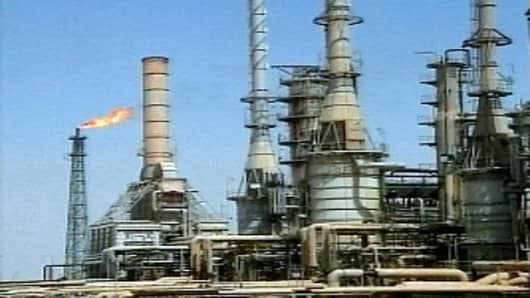OPEC's oil output is expected to rise by 200,000 barrels per day in July from June because of higher supplies from Saudi Arabia and Iraq, industry consultant Petrologistics said on Friday.
The boost from the Organization of the Petroleum Exporting Countries is less than expected and may indicate limited demand for the heavier crude grades offered by top exporter Saudi Arabia, despite record-high prices.
All 13 OPEC members are expected to pump 32.9 million bpd in July, up from a revised 32.7 million bpd in June, Conrad Gerber, head of the Geneva-based company, told Reuters.
"The Saudis can't sell all their extra crude so I don't see them going up much further in July, supply-wise," he said.
Saudi Arabia, OPEC's largest producer, is expected to pump 9.45 million bpd in July, up from 9.32 million bpd in June but less than the 9.7 million bpd that Riyadh said it would produce this month.
Iraq is forecast to supply 2.45 million bpd, an increase from 2.33 million bpd in June, despite a brief halt to exports from Iraq's northern fields to Turkey earlier this week.
Angola is also pumping more.
Output is forecast to top 2 million bpd for the first time in July, a slight increase from the previous month and ahead of Nigeria, traditionally Africa's largest exporter.
Nigerian supply, which has been reduced by attacks on oil installations by militants in the Delta region, is expected to be little changed in July at 1.85 million bpd.
Iran, which in June sold large volumes of oil that it had been storing on oil tankers, is expected to supply less in July.
Output is expected to average 4.03 million bpd, about 80,000 bpd less than in June.
OPEC has kept official supply limits unchanged at meetings this year, saying consumers have enough and has blamed factors beyond supply and demand for oil's rally, such as the weakening U.S. dollar.
Even so, the Petrologistics estimate suggests the 12 OPEC members bound by deals to set supply policy, all except Iraq, are producing 30.45 million bpd, more than their informal target of 29.67 million bpd.
Petrologistics measures OPEC supply, which excludes oil produced but sent into storage rather than exported, by tracking tanker shipments.
OPEC itself does not issue timely estimates of its members' output.


